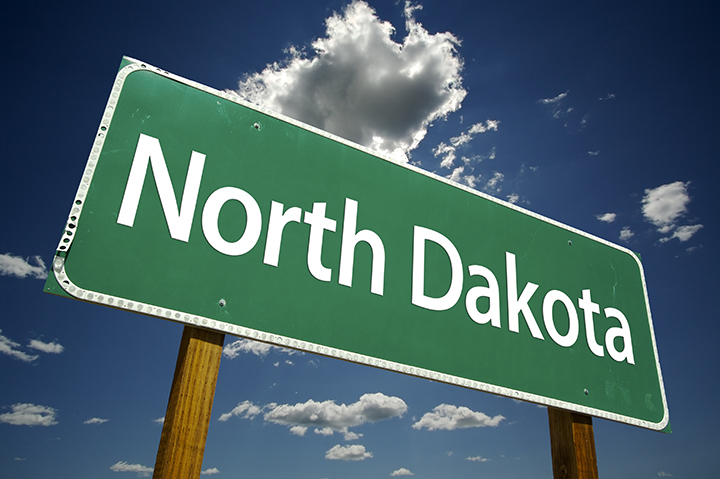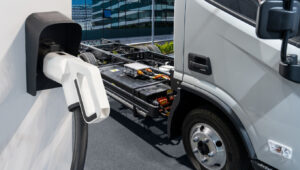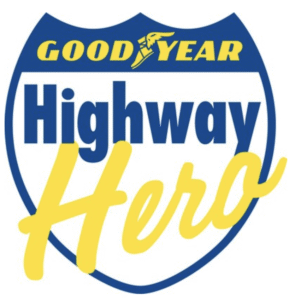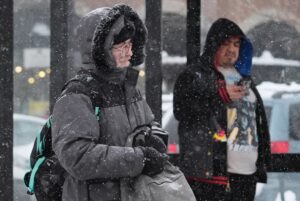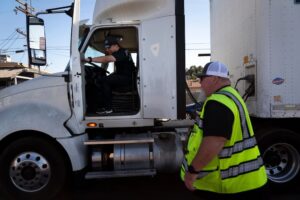BISMARCK, N.D. — A legislative panel endorsed a bill Feb. 4 that would increase the speed limit from 75 mph to 80 mph on North Dakota’s two interstate highways and require drivers to maintain a speed of at least 40 mph on them.
The House Transportation Committee gave the measure a “do-pass” recommendation in what is the latest of many efforts over the years primarily by Republican lawmakers to allow North Dakota drivers to be heavier-footed. The bill now goes to the House Appropriations Committee, which deals with the financial impact of legislation. The full House will consider it later.
Lawmakers have defeated similar bills to increase speed limits on interstates and other highways, including in 2019 when a bill failed in the House because of a tie vote.
This latest measure, sponsored by West Fargo GOP Rep. Ben Koppelman, does not include changes in any speeding penalties. A separate bipartisan bill pending in the House aims to standardize sanctions and fines for speeding across all zones.
Koppelman, who has been an ardent supporter of faster highway speeds, said the bill, if passed, would still allow local officials to control the speed of interstates where they pass through city limits.
The measure also would allow the state Department of Transportation to phase in the higher limits along sections of the interstates. That would done initially in areas that can “in all areas that can handle the speed” and later in other stretches when they are upgraded, he said.
If approved, North Dakota would join only a handful of other states, including neighboring South Dakota and Montana, that allow 80 mph on some highways.
“The irony here is that we probably have the highways with the least number of curves and hills,” Koppelman said.
Ron Henke, the Transportation Department’s deputy director for engineering, said the state’s highways are designed for current posted speed limits. He said an engineering analysis would have to be done on Interstates 94 and 29 to determine if the roads would be safe with the increased speeds.
The legislation does not affect any other North Dakota four-lane roads, such as U.S. Highway 83 or U.S. Highway 2.
Henke estimated it would cost about $500,000 to upgrade signage along the interstates to reflect the higher speeds.
Committee member Rep. Greg Westlind, a Republican from Cando, opposed the bill, saying the added expense of increasing the limit was not necessary.
Westlind said that he and others already drive a few miles over the 75 mph posted speed limit.
“I do it all the time,” he said.
The North Dakota Highway Patrol took a neutral position on the measure.
Sgt. Wade Kadrmas said troopers typically issue only a warning for drivers who speed up to 5 mph over the limit on the interstates. Above that, he said, troopers “issue a citation.”
The pending bill that would standardize speeding penalties in all speed zones actually would lower fines for drivers on the interstates, from $5 for every mile over to $2 for the first 10 mph over 75.
That could incentive drivers to speed, Kadrmas said.
“While the vast majority of drivers follow the speed limit, we are all aware of those drivers who will continue to push the envelope,” he said. “They will take the increase to 80 and the decrease in penalties as a sign it is acceptable to go 5 to 10 mph over the limit, or even greater.”
Raising speed limits in North Dakota has been long debated in the Legislature. Lawmakers in 2003 passed legislation raised North Dakota’s interstate speed limit from 70 mph to 75 mph, and bumped the limit to 70 mph on four-lane roads outside the interstate system.
Former Gov. John Hoeven vetoed a 75 mph speed limit two years earlier, saying the higher limit should have been accompanied by stronger penalties for violating it.
By James MacPherson, The Associated Press
The Associated Press is an independent global news organization dedicated to factual reporting. Founded in 1846, AP today remains the most trusted source of fast, accurate, unbiased news in all formats and the essential provider of the technology and services vital to the news business. The Trucker Media Group is subscriber of The Associated Press has been granted the license to use this content on TheTrucker.com and The Trucker newspaper in accordance with its Content License Agreement with The Associated Press.







